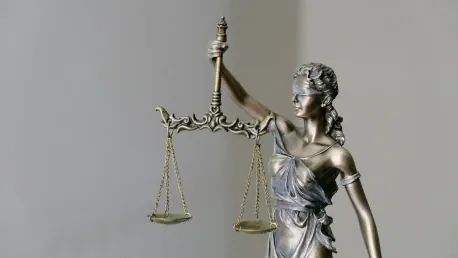In the world of legal proceedings, honesty and integrity occasionally waver, leading to significant consequences for those involved. One such example of the legal system’s intolerance for deceit emerged recently in a case involving Daniel’la Deering, an in-house lawyer who was fired by Lockheed Martin. Deering sued her former employer for unlawful retaliation and claimed she had lost wages as a result of her termination. However, her case took a dramatic turn during the deposition phase when it was revealed that Deering had provided false testimony about her employment status and salary. While Deering claimed she had ceased her job search due to discouragement, it later came to light that she had already secured a higher-paying job, and her dishonesty extended to submitting a resume that omitted this new employment information.
Uncovering the Deception
The depth of Deering’s deception was uncovered when Lockheed Martin’s legal team reviewed her income documents. The significant disparity between her reported and actual earnings was evidenced by her W-2 forms, which indicated she had earned twice what she claimed during her deposition. This revelation led Lockheed Martin’s legal team to request the dismissal of her lawsuit as a punitive measure. The court concurred, recognizing the blatant dishonesty in Deering’s testimony and documentation. As a result, not only was her lawsuit dismissed, but she was also ordered to pay $93,193 in attorneys’ fees to Lockheed Martin.
Deering’s defense attempted to shift the blame to her attorneys, alleging they had advised her to lie during the deposition. However, the appeals court did not accept this argument, emphasizing the importance of personal accountability. The court highlighted the fact that Deering had taken an oath to tell the truth and reiterated that clients are responsible for the actions of their lawyers. By holding Deering accountable for her falsehoods, the court reinforced the importance of personal integrity and adherence to ethical standards in legal scenarios.
Legal Integrity Cannot Be Compromised
The judgment against Deering underscores a critical theme within the legal system: legal integrity cannot be compromised. The judiciary has little tolerance for misconduct and falsehood, and it is imperative for all parties involved in legal proceedings to adhere strictly to honesty and truthfulness. This case demonstrates the severe repercussions that can arise from failing to provide truthful disclosures, including the potential for lawsuits to be dismissed and for plaintiffs to face punitive financial repercussions.
From a broader perspective, the outcome of Deering’s case provides a valuable lesson for organizations and individuals alike. For organizations, it serves as a reminder to be vigilant and proactive in legal disputes, ensuring that all relevant communications and documentation are preserved and that transparency is maintained throughout litigation. This proactive approach not only upholds the principles of justice but also safeguards entities from the potential fallout of dishonest behavior.
Lessons in Transparency and Accountability
For individuals, especially those involved in legal proceedings, Deering’s case underscores the vital importance of truth and transparency. The risks associated with dishonest behavior—such as exposure—can significantly weaken legal claims, resulting in severe financial and reputational damage. This case serves as a stark reminder that pursuing justice requires strict adherence to ethical standards, and adherence to the rules is non-negotiable.
In conclusion, the case of Daniel’la Deering highlights the essential role honesty and integrity play in legal proceedings. A well-structured narrative like this provides invaluable insights into legal ethics, reinforcing the importance of truthfulness in achieving justice. Ensuring all parties remain honest and transparent allows the legal system to function effectively, delivering fair and just outcomes for everyone involved. The severe consequences faced by Deering should serve as a cautionary tale for anyone tempted to compromise their integrity during legal disputes, emphasizing the legal system’s unwavering demand for honesty and transparency.









